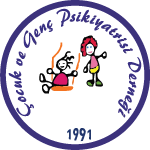ABSTRACT
Discussion:
Some recommendations for researchers and practitioners were presented in the light of research that has been covered and reviewed with this study.
Results:
Regular and continous aerobic exercise was found to improve a series of executive functions such as attention, concentration, response resolution, memory, cognitive control, and planning, in children and adolescents. Closely related to cognitive development, academic achievement was also found to be positively infl uenced by aerobic exercise, as demonstrated by observed increases in test scores of courses such as linguistics and mathematics, as well as overall intelligence test scores. Various studies have associated aerobic exercise and sports with an improvement in common psychiatric problems of childhood and adolescence, such as depression and attention defi cit and hyperactivity disorder.
Methods:
In this study, relevant empirical research published within last 15 years that focused on the effects of aerobic exercise on cognitive function, academic achievement, and mental health of children and adolescents were reviewed.
Objective:
Described as among the environmental enrichments to be made during childhood and adolescence, that constitute foundational stages of human development across the lifespan, aerobic exercise has been identifi ed to positively contribute to both physical and cognitive development of the child.



